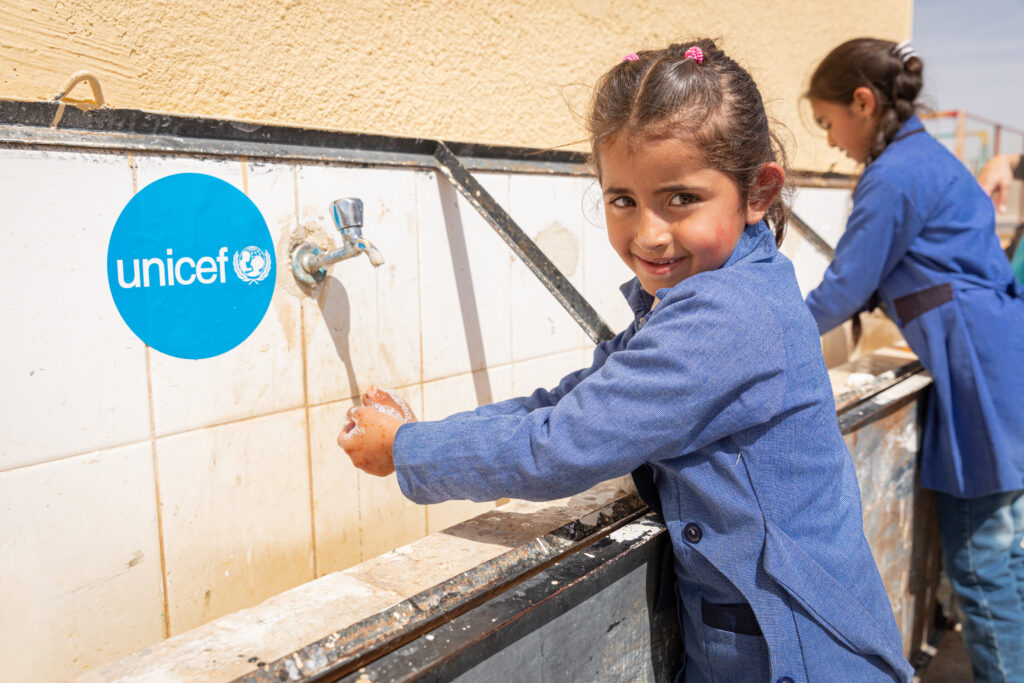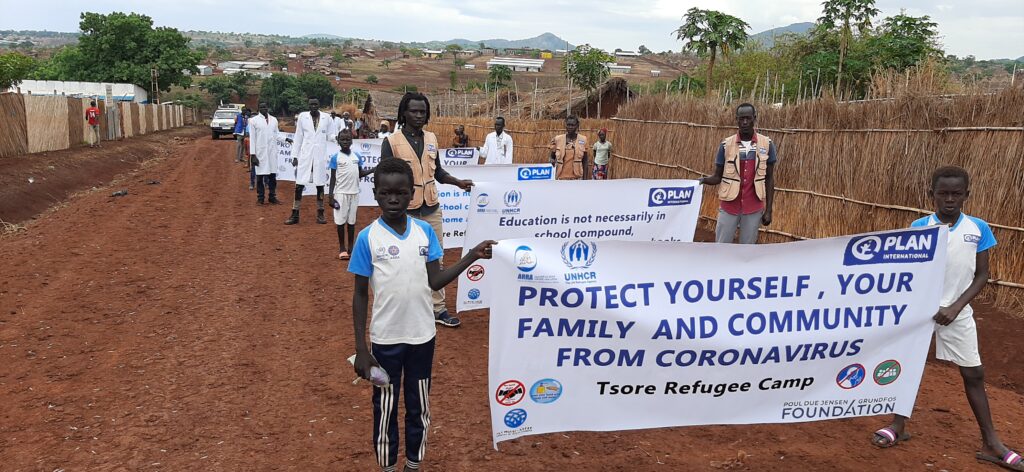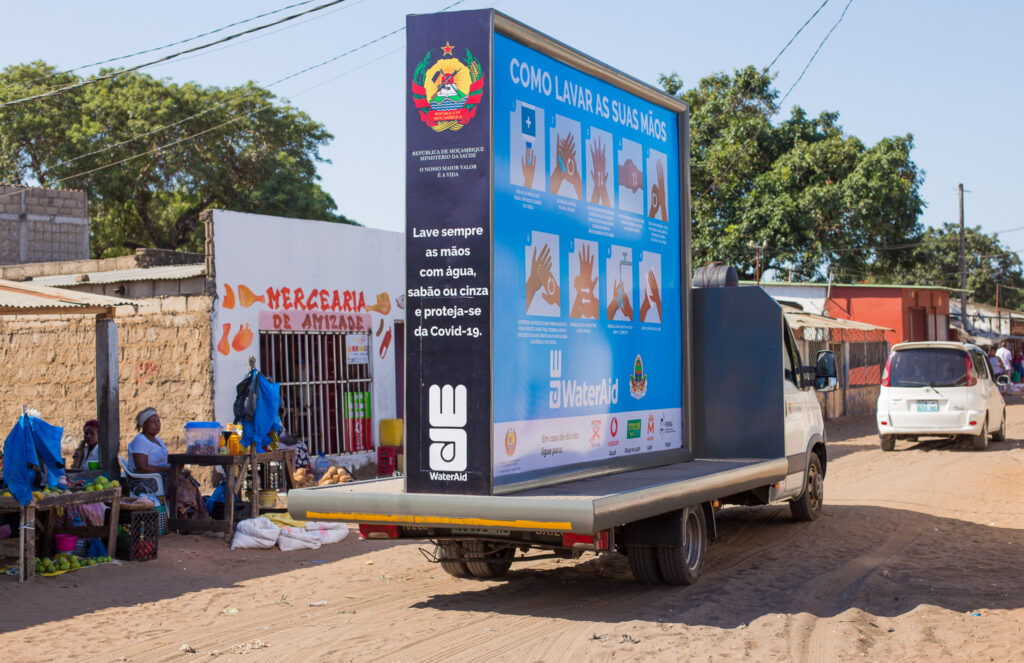As COVID-19 began to spread across developing countries, the Foundation acted quickly, both diverting funding from on-going projects to disease prevention through water, sanitation, and hygiene (WASH) as well as releasing new grants for emergency relief. We have been working with our partners to provide hand-washing stations and step up hygiene and disease prevention awareness activities in the refugee camps and communities we work in. Additionally, we have provided training and personal protective equipment to health workers in those areas.
Besides the activities with our partners, we have made extraordinary donations to several other organisations: Doctors without Borders (MSF), the International Committee of the Red Cross (ICRC), Norwegian Refugee Council (NRC), the Human Needs Project and World Vision.
UNICEF | DR Congo, Libanon, Yemen, Sahel (Niger), Afghanistan, Jordan, Vanuatu mfl.
For both ongoing and new humanitarian crises during 2020, COVID-19 has layered an extra threat on children and families already in dire need. Through our support to UNICEF’s E365 emergency fund and an extraordinary grant toward WASH infrastructure, we have been able to provide lifesaving support to some of the world’s most vulnerable children and their families.
Practical Action | Kenya
Practical Action and the Foundation have been working on a project for the past year to improve access to drinking water for 72,000 of Kenya’s most marginalised people in Turkana, an impoverished area of north west Kenya, characterised by arid and semi-arid lands and staggeringly high poverty.
Recognising the impact that coronavirus will have on remote communities, Practical Action and the Foundation launched a joint response to help limit the spread of the virus within these communities, including:
- Broadcasting of coronavirus and hygiene messaging through local radio, television, SMS and community noticeboards, strengthened through community health volunteers, local government and area chiefs to reach local communities.
- Distribution of water storage containers, soap, handwashing stations and health and sanitation kits to the most vulnerable.
Oxfam | Nepal
Together with Oxfam, we have reached over 143,000 people through our COVID-19 response in Sarlahi, Rautahat, and Kanchanpur districts, supporting medical personnel, frontline workers, and community members at 60 quarantine centres, 10 isolation centres, 4 border points, and 35 health care facilities.
Our assistance includes: public health support (soap, clean water, and innovative foot-operated handwashing stations, hygiene kits, PPE, toilets and bathing facilities at quarantine and isolation centres); battling mis-information on how to stay safe through prevention messaging via TV, FM radio, and mobile ‘microphoned’ vans in rural areas; and of course crucial food and essentials support for those isolated and suffering the economic impacts of the lockdown.
COVID-19 response in Nepal from Grundfos Foundation | PDJF on Vimeo.
Importantly, we also worked to refer women and girls to protection services and legal support, as many became increasingly at risk of harassment and gender-based violence during the strain of COVID-19 lockdown.
Plan International | Ethiopia
As the COVID-19 pandemic brought many of the planned activities to a halt, we agreed to divert some of the project funds from our programme in Togo to prevention of COVID-19 in Ethiopia through securing access to clean water, hygiene information and sanitary products.
In the camps, access to water and sanitation is already a challenge, and the high population density makes it almost impossible to keep social distancing. With COVID-19 demanding more attention to hygiene and health measures, we saw a real risk that panic and chaos would spread among the many vulnerable people.
With our swift action, we helped keep calm and a feeling of safety for almost 400,000 people in Ethiopian refugee camps.
Water Mission | Tanzania, Kenya, Mexico, Indonesia, Uganda & more
Making hand-washing facilities available is important to help people protect themselves from COVID-19. In early April, Water Mission received DKK 10.2 million (USD 1.5 million) for a COVID-19 Emergency Hand Hygiene Program establishing hand-washing facilities at all tap stands as they pose a significant risk of transferring virus from one user to the next. Since then, Water Mission has developed a series of information resources and made them available to everyone.
WaterAid | Mozambique
Unused project funds were diverted to combat the spread of COVID-19 with innovative and powerful hygiene behaviour change messaging and clean water. Focusing on high traffic areas such as markets and healthcare facilities, WaterAid’s work has put clean water and soap in the frontline against COVID-19.




